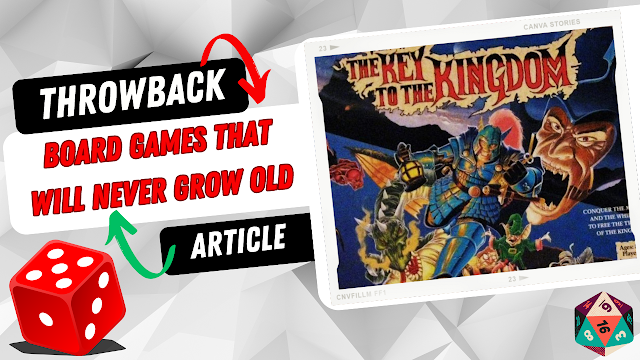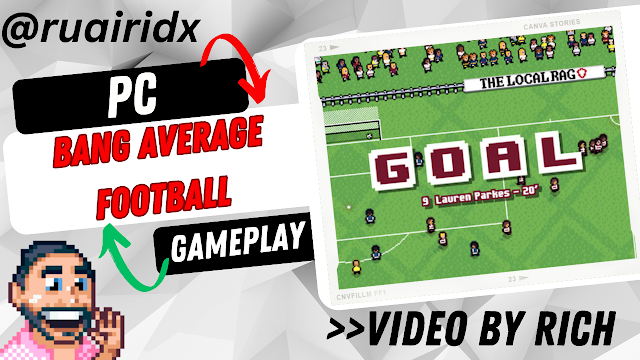It seems like the god game is a dying breed.
Granted, we’ve never had very many of them, and the genre is apparently too tainted by Peter Molyneux’s grubby paws to stand a chance today.
Well, there’s a new kid on the block to rival the likes of Godus, and it offers a more focussed experience than our bald-bonced friend’s “you can do anything!” approach.
Its name is Crest, and it’s currently being developed in the slow cooker that is Early Access.
Here’s hoping it doesn’t end up half-baked.
Granted, we’ve never had very many of them, and the genre is apparently too tainted by Peter Molyneux’s grubby paws to stand a chance today.
Well, there’s a new kid on the block to rival the likes of Godus, and it offers a more focussed experience than our bald-bonced friend’s “you can do anything!” approach.
Its name is Crest, and it’s currently being developed in the slow cooker that is Early Access.
Here’s hoping it doesn’t end up half-baked.
(N.B.: this reviewer has never played a traditional god game before. Whoops.)
This screen pretty much covers the aesthetics of the game. Neat!
Jump into the world of Crest, and you’re given a tutorial which takes you through the basics of the game: issuing commandments to your followers, understanding their needs, and showing you that while you are lord and master of all you survey, the people still have freewill and will sometimes do what they like. More on that later.
This tutorial is clear and comprehensive, and does a good job of explaining most of what you need to know about how the game works. There are some parts that aren’t very well-explained, but overall, it does a good job of leading you into the experience.
This tutorial is clear and comprehensive, and does a good job of explaining most of what you need to know about how the game works. There are some parts that aren’t very well-explained, but overall, it does a good job of leading you into the experience.
Another thing you’ll notice immediately is Crest’s unique artstyle, which can best be described as ‘polygonal’. From the very start, the game mixes this style with a UI made up of stone tablets and cave paintings; two very different, yet equally primitive aesthetics.
While it may look simple on the surface, I reckon the artstyle has been chosen because it’s simple – it kind of implies a fledgling world that’s in early stages of development, which is exactly what the game’s about. It works on an artistic level…but I must say, the lions do look a bit weird.
While it may look simple on the surface, I reckon the artstyle has been chosen because it’s simple – it kind of implies a fledgling world that’s in early stages of development, which is exactly what the game’s about. It works on an artistic level…but I must say, the lions do look a bit weird.
Bit of a bad mane day.
Crest’s game mechanics revolve around being able to influence your people. You don’t get complete control, you don’t get to finely tune every tiny aspect of your followers and their towns – all you have the power to do is issue commandments to them, and cross your fingers that they’ll do your bidding. Much like one of the three endings in Deus Ex, you are the invisible hand.
For the most part, as long as your subjects are happy, healthy and well-fed, this is exactly what will happen. They will, however, disobey if they see a problem – not enough food, they’ll start farming or hunting whether you like it or not. They’ll also go off and do their own thing if they’re losing faith in you as a god, which ties into the population’s happiness.
Not only that, but once a commandment is passed down, it’s not necessarily set in stone: after a few generations have passed, it’ll be interpreted in a different way. Sometimes this can be a simple change; ‘savannah’ might change to ‘desert’, for example. Other times, however, it can be radically different, with only a fleeting resemblance to your original message.
It’s a very interesting game mechanic, and means the world feels more alive and, again, reinforces the fact that these people have freewill. The fact that you’re influencing rather than controlling does mean it can be difficult to get your people back on track if all goes out of hand, but I suppose that’s just the nature of the game.
At one point during my playthrough, I was sitting at 91% faith – and yet, most of the people were off gallivanting instead of doing God’s will. It remains to be seen whether this system proves to be challenging, or just frustrating.
For the most part, as long as your subjects are happy, healthy and well-fed, this is exactly what will happen. They will, however, disobey if they see a problem – not enough food, they’ll start farming or hunting whether you like it or not. They’ll also go off and do their own thing if they’re losing faith in you as a god, which ties into the population’s happiness.
Not only that, but once a commandment is passed down, it’s not necessarily set in stone: after a few generations have passed, it’ll be interpreted in a different way. Sometimes this can be a simple change; ‘savannah’ might change to ‘desert’, for example. Other times, however, it can be radically different, with only a fleeting resemblance to your original message.
It’s a very interesting game mechanic, and means the world feels more alive and, again, reinforces the fact that these people have freewill. The fact that you’re influencing rather than controlling does mean it can be difficult to get your people back on track if all goes out of hand, but I suppose that’s just the nature of the game.
At one point during my playthrough, I was sitting at 91% faith – and yet, most of the people were off gallivanting instead of doing God’s will. It remains to be seen whether this system proves to be challenging, or just frustrating.
As you continue further into the game, slinging out your divine wisdom whenever you see fit (provided you have the sufficient influence points, that is), it’s plain to see that the game is in definite need of some optimisation before release.
In the time it takes to load a new game, you could make a cuppa, have a match of Team Slayer, and swim the English channel twice – and the framerate goes from being a bit choppy to being less stable than half a TIE fighter. That said, it is early days, so I can let the developers off for that.
In the time it takes to load a new game, you could make a cuppa, have a match of Team Slayer, and swim the English channel twice – and the framerate goes from being a bit choppy to being less stable than half a TIE fighter. That said, it is early days, so I can let the developers off for that.
Some of the animations could use some spit-and-polish, too. When the people are simply walking around or tilling the land for farms, it looks fine, if a little sluggish. Beyond that, it gets a bit odd. When commanded to reproduce, they do a bizarre tribal dance – which I guess makes sense, but the animation for it looks unnatural and awkward. The same goes for the animation when they’re out exploring, but instead they just look like they’re sidling up to a vault full of diamonds, ready to punch in the access codes. Except, of course, they’re holding staves and wearing loincloths instead of three-piece suits.
No bank vaults out here.
Another thing I noticed, and this could be another optimisation issue, was that the villagers often rubber-banded around while walking. It was the same effect that you see if you’re playing a game with someone who has a high ping – they seem to teleport back and forth, never seeming to get anywhere. Strange to see such a thing in an offline, singleplayer game.
Some of the game mechanics can be a bit obtuse, too. Cities have a certain number of needs, such as sustenance, safety and offspring. Those are pretty straightforward, right?
Sustenance means having a plenty of food, and offspring surely means plenty of procreation to ensure the survival of the nation.
So, what does ‘abundance’ mean? Is that more food, or maybe luxury resources?
What about ‘fellowship’? I couldn’t see anything that could possibly have helped with fellowship, save for migrating my people to the other town – but they wanted to kill each other instead, and I didn’t really know why or what I could do to help prevent that.
Perhaps that’s the point – in the wise words of the sniper, as long as there’s two people left on the planet, someone’s gonna want someone dead.
That’s pretty much how my game went.
Sustenance means having a plenty of food, and offspring surely means plenty of procreation to ensure the survival of the nation.
So, what does ‘abundance’ mean? Is that more food, or maybe luxury resources?
What about ‘fellowship’? I couldn’t see anything that could possibly have helped with fellowship, save for migrating my people to the other town – but they wanted to kill each other instead, and I didn’t really know why or what I could do to help prevent that.
Perhaps that’s the point – in the wise words of the sniper, as long as there’s two people left on the planet, someone’s gonna want someone dead.
That’s pretty much how my game went.
Spider Meadow? No wonder they’re all flocking to leave.
Summary: Overall, I’d say Crest is coming along nicely.
There’s still a ways to go, but I’m confident the developers can pull it off.
Definitely one to keep an eye on if you’re interested in this sort of thing.
Game Link: Steam
Dev Link: Eat Create Sleep
RATING: MELTING
Ratings Explained
ICE COOL (Great Game Recommended)
MELTING (Just Falls Short Of Greatness)
MELTED (Not A Recommended Purchase)
Review By Tim








No comments:
Post a Comment
Like what you see in the Games Freezer?
Why not tell us what you think with a few well-chosen comments? :)
Note: only a member of this blog may post a comment.